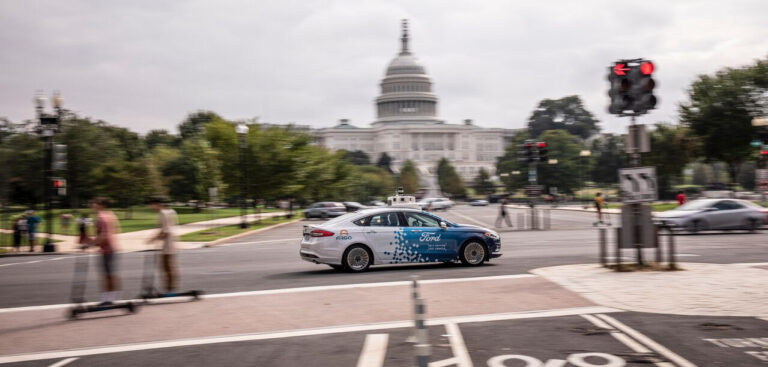Ford has announced that it is beginning tests of autonomous vehicles on the streets of Washington DC in the USA, with the ultimate goal of rolling out a commercial self-driving car service by 2021.
Ford Autonomous Vehicles CEO Sherif Marakby revealed in a blog post that the car maker intends to establish a self-driving vehicle business that will serve the needs of the city and its residents by offering the likes of affordable public transportation, as well as food and e-commerce delivery.
“Expanding our operations into Washington DC is an enormous opportunity to understand how a comprehensive self-driving business could be utilized. The city is one of the largest markets in the USA, with its population growing significantly during working hours as people commute from the suburbs or take the subway. Outside of commuters, there are millions of visitors every year, major conferences, a popular food scene, and high demand for ridehailing and delivery services,” said Marakby.
“This technology holds the potential to change our world far beyond our nation’s capital, but DC is an ideal place to continue building the foundation for a great service — one that helps free up our roads, ease congestion and improve people’s access to the services they need.”
Ford will test its autonomous vehicles in all eight of the city district’s wards and is working with Argo AI – an autonomous development company that is already mapping roads in the DC area using driven vehicles and has plans to expand its fleet as testing areas expand.
Marakby sees Ford’s self-driving service not only as a boost to mobility and retail in the city but also an opportunity to promote new jobs.
“Both Ford and district officials are committed to exploring how self-driving vehicles can be deployed in an equitable way across the various neighborhoods that make up Washington DC, and in a way that promotes job creation,” said Marakby.
“We are looking to train a roster of vehicle operators, who will be responsible for safely operating and monitoring our test vehicles on public roads and on closed courses throughout the development process. Additionally, we will work to train residents for auto technician careers that could involve self-driving vehicles in the future.”


